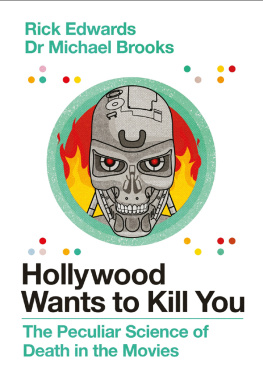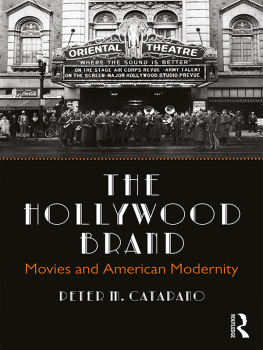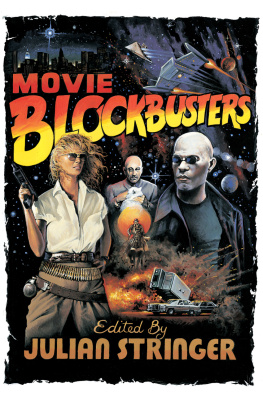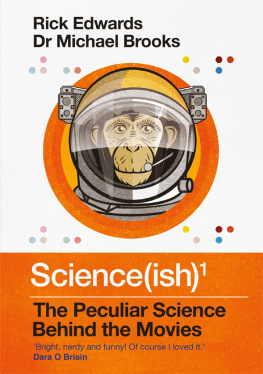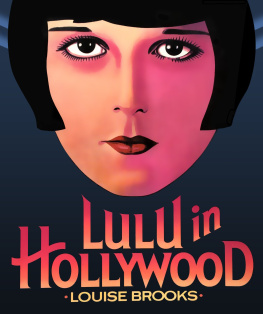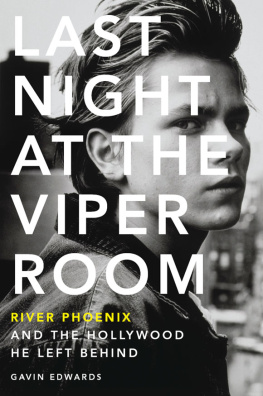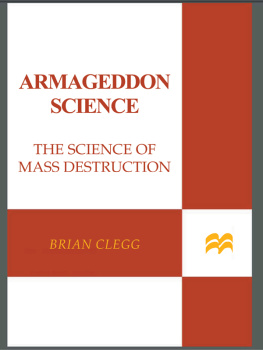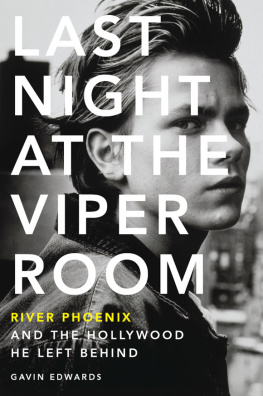Contents
Guide
Praise for Science(ish)
Bright, nerdy and funny! Of course I loved it.
Dara Briain, writer and comedian
If you are a geek, a film buff, curious or simply want to know whether you still get BO in space, this is the book you have got to have.
Kate Humble, BBC TV Presenter
Deeply funny, academically accomplished, and unfalteringly engaging.
Ben Miller, comedian and author of Its Not Rocket Science
Explores everything from the ins and outs of black holes (Interstellar) to artificial intelligence (Ex Machina)... Edwards and Brooks dont take themselves too seriously and their cartoon heads pop up throughout deconstructing the films wittily while explaining the underlying science simply.
Sunday Times Science Books of the Year
A terrific, engaging read that brings to life some of the fascinating science that lies behind the movies.
Johnjoe McFadden, Professor of Genetics, University of Surrey
About the Authors

Rick Edwards is a writer and television presenter. He is the host of BBC 1s quiz !mpossible. Rick has a Natural Sciences degree from Cambridge, which he is finally getting some use out of.

Dr Michael Brooks is an author, journalist, and consultant for the New Scientist. His biggest accomplishment to date is not the PhD in Quantum Physics its writing Ricks favourite popular science book, 13 Things That Dont Make Sense.
Together, they wrote the Sunday Times Science Book of the Year, Science(ish): The Peculiar Science Behind the Movies. They also present the award-winning podcast Science(ish) for Radio Wolfgang. Follow their every move on Twitter @science_ish and the website www.scienceish.org.

First published in hardback in Great Britain in 2019 by Atlantic Books, an imprint of Atlantic Books Ltd.
Copyright Rick Edwards and Michael Brooks, 2019
The moral right of Rick Edwards and Michael Brooks to be identified as the authors of this work has been asserted by them in accordance with the Copyright, Designs and Patents Act of 1988.
All rights reserved. No part of this publication may be reproduced, stored in a retrieval system, or transmitted in any form or by any means, electronic, mechanical, photocopying, recording, or otherwise, without the prior permission of both the copyright owner and the above publisher of this book.
1 2 3 4 5 6 7 8 9
A CIP catalogue record for this book is available from the British Library.
Internal illustrations www.alternativeaesthetics.co.uk
Hardback ISBN: 978 1 78649 692 8
E-Book ISBN: 978 1 78649 694 2
Printed in Great Britain
Atlantic Books
An Imprint of Atlantic Books Ltd
Ormond House
2627 Boswell Street
London
WC1N 3JZ
www.atlantic-books.co.uk
Contents
Introduction
This book is for people who can tick the following boxes:
I am going to die one day
I enjoy watching movies
W e should point out straight away that reading this book will probably not prevent your eventual death. There are limits to what you can achieve as an author, even when youre as good at writing as wot we are.
Our goal is a little more modest. We think that, with Hollywoods help, we can improve on who you are. So, if you can tick both boxes, read on.
It may not look like it, but this is a self-help book. Were aware it doesnt have an explicitly self-helpy kind of title. Its not Six Ways You Can Improve Your Life by Obsessing Over Your Inevitable Demise While Stuffing Yourself with Overpriced Popcorn and Lukewarm Nachos or Harness Hollywood and Live Forever (In Your Loved Ones Hearts). But it will make you a better person through our three-step programme:
Step one: watch some movies. Easy, huh?!
Step two is almost as easy: read our descriptions of the various ways in which those movies usher in the Grim Reaper.
Step three is a bit harder: it involves actually facing up to your own death.
The good news is, step three is optional. By the time youve completed step two, youll be a better person anyway. Why? Because, by completing steps one and two, youll be aware that death is everywhere in the movies. Its not really that Hollywood wants to kill you. Its more that it has no choice. Threatening to kill things is how you get a human beings attention, and your attention is something Hollywood wants very badly.
Every good screenwriter and director knows that something in our programming desires, loves and craves a brush with death. We like to smell the ferrous tang of blood (metaphorically, at least). We thrive on the adrenaline that accompanies the threat. Perversely, it makes us feel alive, and thats what encourages us to be better people and make the most of life.
Thats why all human cultures tell stories that revolve around the danger of death. For as long as there has been recorded history and conversation, there have been stories about death. The first recorded story, written on clay tablets 4000 years ago, is a collection of poems known as The Epic of Gilgamesh. Whats it about? A kings fear of death and his quest for immortality. Some of the most gripping stories written since involve a hero who does battle with a deadly monster: Beowulf vs Grendel, Theseus vs the Minotaur or Rocky vs Ivan Drago.
This human desire for tales that deal with mortality has shaped Hollywood. Thats why youll usually get a brush with death near the beginning of your movie. In Bambi, the mother dies (sorry). Beauty and the Beasts Belle has also lost her mother. In fact, so many Disney heroes have lost a parent that its hard to understand how they ever get their child-friendly ratings. Disney practically has you tripping over wicked stepfathers and evil stepmothers, or caring but incompetent aunts and uncles. From Frozen to Star Wars, dead relatives launch a shocking number of its plots.
And death is never far away elsewhere in Hollywood, because keeping death close heightens your movie experience. Thats why every hero or heroine has to face their own mortality, or deal with an existential threat that looms over them, their family, their community, their planet maybe even their whole galaxy. Whether they take the form of viruses, sharks, asteroids, homicidal aliens or plain old knife-wielding psychos, death-dealing monsters are always somewhere close by.
It may not sound great, but it is. Partly, because its an excuse to explore science. Much of scientific endeavour is really about finding ways to avoid death. Thats why the pages of this book are filled with the exploits and insights of scientists. They look into outer space to examine the threat from asteroids. They try to work out how to describe death itself do we mark the cessation of life from when the heart stops beating or when the brain can no longer light up an MRI scanner? How predators evolved, how they kill and how to avoid them have been major scientific themes throughout much of human history. There are very modern questions, too: is our entire species at risk because of artificial hormones released into the environment in modern plastics, for example? Is climate change about to hit a tipping point where our planet is plunged into chaos? Is our current epidemic of sleeplessness going to destroy our minds? And, a century after one of the greatest pandemics of human history, what exactly can we do about the existential threat that viruses create? Are disease and death inevitable, or are we on the cusp of a cure for everything?

